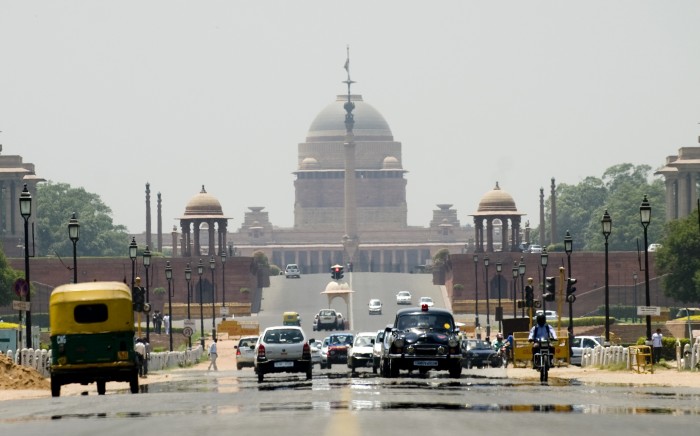Climate Change Has Made Heat Waves Much More Deadly, Mainly for the Poor

It is generally held that if we can avoid warming the planet by 2 oC above pre-industrial temperatures, we may be able to avoid the worst effects of climate change. In India, though, just a quarter of that warming has more than doubled the risk of deadly heat waves.
A study published in Science Advances shows that as average summer temperatures in India rose 0.5 oC from 1960 until 2009, the chance of a heat wave causing more than 100 deaths more than doubled. As the authors write, their work is far from theoretical: heat waves in 2010, 2013, and 2015 each killed thousands of people across the country. In May 2016, the northwestern city of Jaisalmer recorded India’s most intense heat wave ever, while just last month a city in nearby Pakistan recorded a temperature of 53.5 oC (over 128 oF)—the hottest temperature ever measured on Earth in the month of May.
If this warming were happening in a place where most people had a way to get cool, it might not be quite as dangerous. But about 24 percent of India’s 1.24 billion people live on less than $1.25 a day, putting central air conditioning far out of reach. These are the people who will be—and indeed already are—disproportionately affected by climate change. And it's going to get worse: by the end of the century, India is projected to warm another 2.5 to 5.5 oC.
The work is just one aspect of how climate change is exacerbating global inequality, and figures to continue doing so for the foreseeable future. Those who are not directly killed by extreme heat will have to endure some of its more subtle effects, like hurting crop yields and damaging overall economic productivity.
Richer people and countries will be better equipped to adapt. And in a cruel twist, some of those nations, particularly in northern Europe, might actually get a boost in GDP as their cold climates get increasingly balmy (see “Hotter Days Will Drive Global Inequality”).
But around the world, the overwhelming story will look a lot like what India is already experiencing. An awful lot of people are going to be worse off and, unless drastic measures are taken, too many of them will lack the resources they need to do much about it.
(Read more: Science Advances, the Washington Post, “Hotter Days Will Drive Global Inequality”)
Keep Reading
Most Popular
Large language models can do jaw-dropping things. But nobody knows exactly why.
And that's a problem. Figuring it out is one of the biggest scientific puzzles of our time and a crucial step towards controlling more powerful future models.
The problem with plug-in hybrids? Their drivers.
Plug-in hybrids are often sold as a transition to EVs, but new data from Europe shows we’re still underestimating the emissions they produce.
How scientists traced a mysterious covid case back to six toilets
When wastewater surveillance turns into a hunt for a single infected individual, the ethics get tricky.
Google DeepMind’s new generative model makes Super Mario–like games from scratch
Genie learns how to control games by watching hours and hours of video. It could help train next-gen robots too.
Stay connected
Get the latest updates from
MIT Technology Review
Discover special offers, top stories, upcoming events, and more.